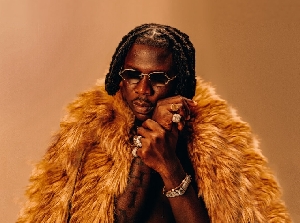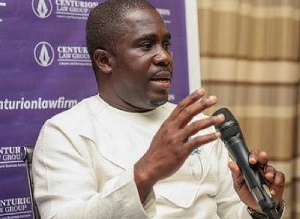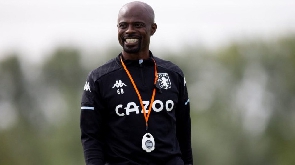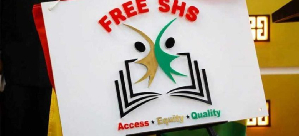By Kwame Okoampa-Ahoofe, Jr., Ph.D.
Until I read about his just-published book titled “Rawlings: Murder and Lies” on Modernghana.com (12/23/08), I faintly remembered the name of ex-Corporal Mathew Adabuga, the author. The latter, who reportedly testified about having perpetrated untold atrocities against many an innocent Ghanaian citizen, at the instigation of then-retired Flt.-Lt. Jeremiah John Rawlings, is also known to have been a key architect of the military putsch that toppled late President Hilla Limann’s democratically elected and Nkrumah-leaning People’s National Party (PNP) on December 31, 1981.
What appears to be fascinating about the book, “Rawlings: Murder and Lies,” is not merely the laudable fact that it was written and published at all, but the even more significant and landmark fact that the book was written by a personality who was in the proverbial eye of the storm. The latter fact, in of itself, gives unimpeachable credibility to the sanguinary and downright barbaric events reportedly catalogued in the book.
In terms of new knowledge or information, it does not appear that Corporal Adabuga’s book offers much; still, whatever little it offers is telling almost to the point of the indisputably traumatic. For instance, while many of us have known that Mr. Rawlings incurably thrives on violence and the immitigable, if also pathological, propagation of tribal nationalism, it is Corporal Adabuga who effectively and eloquently puts paid to the complex concatenation of lies deftly fabricated as a subterfuge in a bid to canonizing a clinically certified tribal nationalist and calculating assassin like Mr. Rawlings into a national hero.
The voting pattern of the Anlo-Ewe of the Volta Region, for example, strikingly reflects the dire and deleterious influence and impact that the career coup-plotter has exerted during the course of the last generation. It, therefore, came as quite a great amusement to me, in a clearly tragic sense, when in an article published on Ghanaweb.com and titled “Voting Patterns from the Volta Region” (12/25/08), my good friend and distant relative Mr. Eric Kwasi Bottah compared polling figures garnered by substantive president Mr. John Agyekum-Kufuor to that which was garnered by New Patriotic Party (NPP) presidential candidate Nana Akufo-Addo and blithely, albeit rather facilely and ahistorically, concluded that, indeed, however infinitesimal, there has been a quite remarkable improvement, or melioration, in the putatively and seemingly intransigent electoral behavior and attitude of the Anlo-Ewe of the Volta Region.
The problem that Mr. Bottah, alias Oyokoba, has in attempting to argumentatively sustain his progressivist spin on Anlo-Ewe voting pattern and attitude since the 1993 inauguration of Ghana’s Fourth Republic, is that the author’s observation does not square with the proverbial historical reality on the ground. For instance, going by Mr. Bottah’s own logic, “the dead politician” who ran for the presidency on the ticket of the erstwhile Danquah-Busia-leaning Popular-Front Party (PFP) ought to have drawn a zero number of electoral votes and/or parliamentary seats in the Volta Region during the 1979 general election, assuming by Mr. Bottah’s logic that, indeed, Mr. Victor Owusu, in denouncing the Anlo-Ewe as a pathologically “inward-looking people” during the heady days of Ghana’s First Republic, had so callously pushed these ex-Trans-Volta Togolese “to the corner” as to make the latter lash back at the “now-dead politician” with untold venom and vengeance.
On the contrary, Mr. Victor Owusu actually managed to clinch 5 parliamentary seats for the PFP in the Volta Region in 1979. Fast forward to Elections 2000, 2004 and 2008 vis-à-vis the dismal parliamentary and electoral fortunes of the Danquah-Busia-leaning New Patriotic Party, and it becomes incontrovertibly evident to even the least Arithmetically literate observer of postcolonial Ghanaian electoral culture that, indeed, the pattern most recently witnessed in the Volta Region is anything but progressive! And this is precisely where ex-Corporal Mathew Adabuga and his book, “Rawlings: Murder and Lies” come in.
In launching his book, Corporal Adabuga is widely reported to have noted with apparent anguish that, perhaps, the most significant contribution of Flt.-Lt. Jeremiah John Rawlings to contemporary Ghanaian political culture is unprecedented ethnic polarization. To be certain, this is how Mr. Bennett Akuako, of the Accra-based Daily Guide, reported Corporal Adabuga to have wistfully observed: “Rawlings’ use of tribalism against his opponents is legendary. In the 1980s, he worked the Ewes against the Ashantis. He [even] accused the Ashantis of having hijacked the whole of Ghana, while the NDC, which is controlled by Rawlings, has based its whole Volta campaign on anti-Akan sentiments, and being fanned [sic] by the party and Rawlings himself. In the Central Region of Ghana, the Rawlings-controlled NDC has based its message on tribal sentiments[,] by asking voters to vote for [Prof.] Mills because he is a Fante” (Modernghana.com 12/23/08). In the North, Corporal Adabuga reports that Mr. Rawlings routinely informs potential and registered voters that the Akan of southern Ghana look down upon Northerners. The truth of the matter, though, is that the Anlo-Ewe, historically, participated in the systematic enslavement of Northerners to European slave-traders to a barbaric extent and level that only a few Ghanaians living today can barely imagine.
As for such indelibly traumatic events as the P/NDC-sponsored assassination of the three Akan Supreme Court judges and the retired Army major and former managing-director of the Ghana Industrial Holdings Corporation (GIHOC), volumes and tons of documentation and other research material exist. What is significant about Corporal Adabuga’s version of events, however, is the fact that his is an eyewitness account.
Still, perhaps, what needs to be seriously considered by the Ghanaian electorate in the run-up to Presidential Run-Off 2008, regards what this writer has been consistently telling his readers all along, namely, that electing Prof. Atta-Mills president gives Mr. Rawlings a virtual mandate by which to unleash another savage bout of state-sponsored terror on Ghanaian citizens and residents. Corporal Adabuga puts the matter even more bluntly, if also more eloquently: “The NDC is saying that Professor John Atta Mills can rule this country without interference and intimidation from Jerry Rawlings. This is not possible, given the true nature of Rawlings. Anyone who reads my book and the facts presented in it will come to this conclusion: Rawlings is not a man who shares power.”
*Kwame Okoampa-Ahoofe, Jr., Ph.D., is Associate Professor of English, Journalism and Creative Writing at Nassau Community College of the State University of New York, Garden City. He is the author of 18 books, including “Ghanaian Politics Today” (Atumpan Publications/lulu.com, 2008). E-mail: okoampaahoofe@aol.com. ###
Opinions of Tuesday, 30 December 2008
Columnist: Okoampa-Ahoofe, Kwame
Corporal Adabuga Calls Rawlings Divisive
Entertainment

















